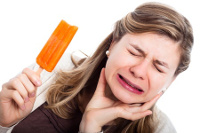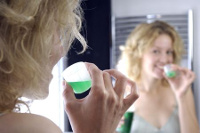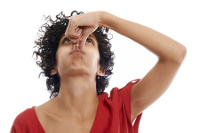5 Reasons Why Your Dentist Loves That You Drink Tea
December 4th, 2014
 You may have heard of the many health benefits of tea, but did you know tea is really good for your teeth as well? Both black and green tea contain catechins, also known as antioxidants, which help remove harmful bacteria from your mouth.
You may have heard of the many health benefits of tea, but did you know tea is really good for your teeth as well? Both black and green tea contain catechins, also known as antioxidants, which help remove harmful bacteria from your mouth.
However, tea does so much more than that. Next to water, it’s the most helpful liquid you can drink. Here are five ways tea is helping your oral health.
Tea Helps Your Gums
Tea is known to have anti-inflammatory elements that help control swelling, bleeding, and infection in your gums. By replacing bad bacteria with good bacteria in your mouth and helping prevent your gums from becoming inflamed, tea is a great way to help fight against periodontal disease.
It Helps Prevent Cavities
Along with clearing out bacteria, tea also helps lower the acidic levels of saliva and plaque in your mouth. Acidic elements are what eat away at the teeth to create cavities. When tea washes away this acidity, it’s harder for cavities to start.
It Keeps Your Teeth In Your Mouth
That’s right, not only can it keep your gums and teeth healthy, it can also help keep your teeth from falling out when you’re older. Studies have shown that men and women who drink one or more cups of tea a day hold onto their natural teeth for longer.
Tea Improves Your Breath
Bad breath derives from bacteria that grow in the far back of your throat, a place that’s hard to reach with a toothbrush. Without proper care, the bacteria breed enough to cause a foul smell. Tea helps by washing away and killing the bacteria, making it easy for your breath to smell fresh all day.
It Helps Prevent Oral Cancer
Antioxidants help every part of the body fight cellular damage and tumor growth. When you drink tea, you’re filling your mouth with antioxidants that are able to help keep your mouth from developing cancerous tumors.
To better help your teeth and mouth, you should know the best way to drink your tea. First, green and black tea are both good for you, but green is definitely better. Black tea is slightly more processed, which results in less antioxidants. And if you like white teeth, black tea is better avoided as it can stain those pearly whites.
To make tea correctly, boil water and pour the hot water over the tealeaves in a ceramic cup. Then, cover the cup with a saucer for 2 to 3 minutes as the tea steeps. This will help get the most out of every bag of tea.
Avoid adding sugar to your tea as bacteria loves to feed off of sugar. Also avoid bottled iced tea as it tends to have citric elements that can help raise the acidic levels of saliva.
If you have any more questions about how tea can help your teeth or if you would like to visit Chicago’s number one rated dentistry, contact Water Tower Dental today. We’re happy to help answer any questions and put you on the path to a better, brighter smile.









 Website Powered by Sesame 24-7™
Website Powered by Sesame 24-7™